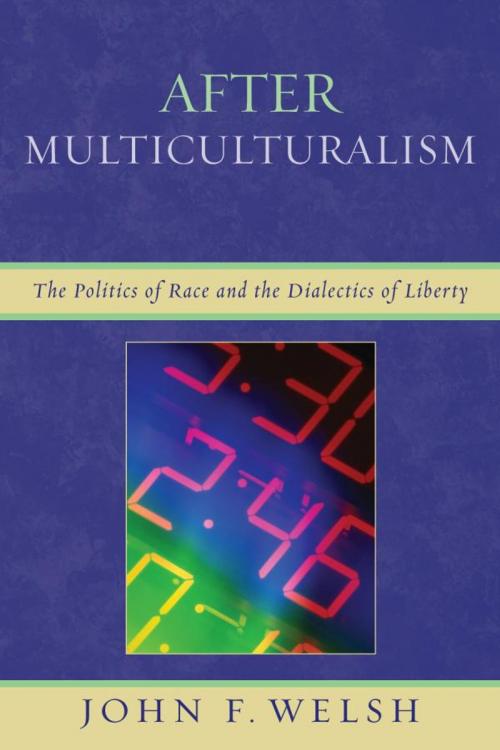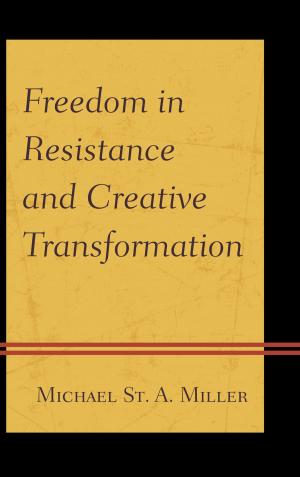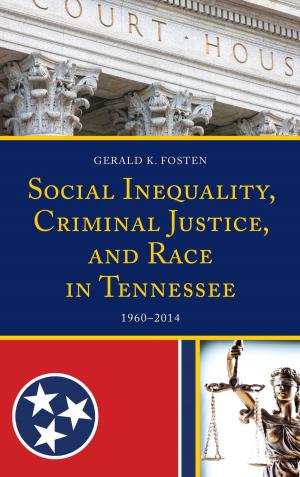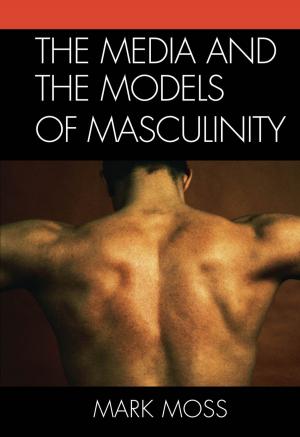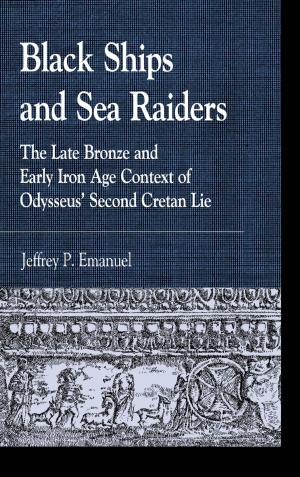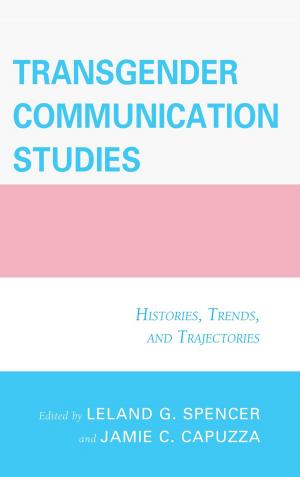After Multiculturalism
The Politics of Race and the Dialectics of Liberty
Nonfiction, Social & Cultural Studies, Social Science, Sociology| Author: | John F. Welsh | ISBN: | 9780739151792 |
| Publisher: | Lexington Books | Publication: | December 12, 2007 |
| Imprint: | Lexington Books | Language: | English |
| Author: | John F. Welsh |
| ISBN: | 9780739151792 |
| Publisher: | Lexington Books |
| Publication: | December 12, 2007 |
| Imprint: | Lexington Books |
| Language: | English |
After Multiculturalism: The Discourse on Race and the Dialectics of Liberty provides a unique critique of multiculturalist thought in social theory and public policy from an individualist perspective. Contemporary academic and policy discourse on race and racism in the United States is dominated by collectivist social theories that are founded on the idea that the only meaningful challenges to racism are those that foster collective social identities and seek to influence and direct the use of state power in the interest of particular racial and ethnic groups. Multiculturalism is the prevailing incarnation of anti-racist thought that informs and mediates political process and organizational life in the United States. The multicultural discourse on race has become tribalist, anti-western, anti-market, and statist. After Multiculturalism challenges the notion that collectivist and statist ideologies 'own' racism as an educational and public policy issue. Welsh demonstrates that individualist philosophies entail critiques of racism that follow directly from their anti-collectivist and anti-statist foundations. He argues that multiculturalism is unlikely to promote the types of social action and changes essential to overcoming racism and that the individualist and libertarian ideas discussed in the book make important contributions toward the realization of a world free of racial domination. To this end, the ideas of Ayn Rand, Murray Rothbard, Benjamin, Benjamin Tucker, Lysander Spooner, Max Stirner and contemporary libertarian scholars are discussed to the lay the foundation for a critique of multiculturalism. The book explores the concepts of post-ethnicity and transracialism as individualist and libertarian expressions of a society 'after multiculturalism.' Welsh's discussions of transracialism and post-ethnicity constitute unique and important contributions to social thought. This book will hold great interest for scholars and students concerned with race, ethnicity, political theory, or individualist thought, as well as scholars and students of the history of ideas.
After Multiculturalism: The Discourse on Race and the Dialectics of Liberty provides a unique critique of multiculturalist thought in social theory and public policy from an individualist perspective. Contemporary academic and policy discourse on race and racism in the United States is dominated by collectivist social theories that are founded on the idea that the only meaningful challenges to racism are those that foster collective social identities and seek to influence and direct the use of state power in the interest of particular racial and ethnic groups. Multiculturalism is the prevailing incarnation of anti-racist thought that informs and mediates political process and organizational life in the United States. The multicultural discourse on race has become tribalist, anti-western, anti-market, and statist. After Multiculturalism challenges the notion that collectivist and statist ideologies 'own' racism as an educational and public policy issue. Welsh demonstrates that individualist philosophies entail critiques of racism that follow directly from their anti-collectivist and anti-statist foundations. He argues that multiculturalism is unlikely to promote the types of social action and changes essential to overcoming racism and that the individualist and libertarian ideas discussed in the book make important contributions toward the realization of a world free of racial domination. To this end, the ideas of Ayn Rand, Murray Rothbard, Benjamin, Benjamin Tucker, Lysander Spooner, Max Stirner and contemporary libertarian scholars are discussed to the lay the foundation for a critique of multiculturalism. The book explores the concepts of post-ethnicity and transracialism as individualist and libertarian expressions of a society 'after multiculturalism.' Welsh's discussions of transracialism and post-ethnicity constitute unique and important contributions to social thought. This book will hold great interest for scholars and students concerned with race, ethnicity, political theory, or individualist thought, as well as scholars and students of the history of ideas.
